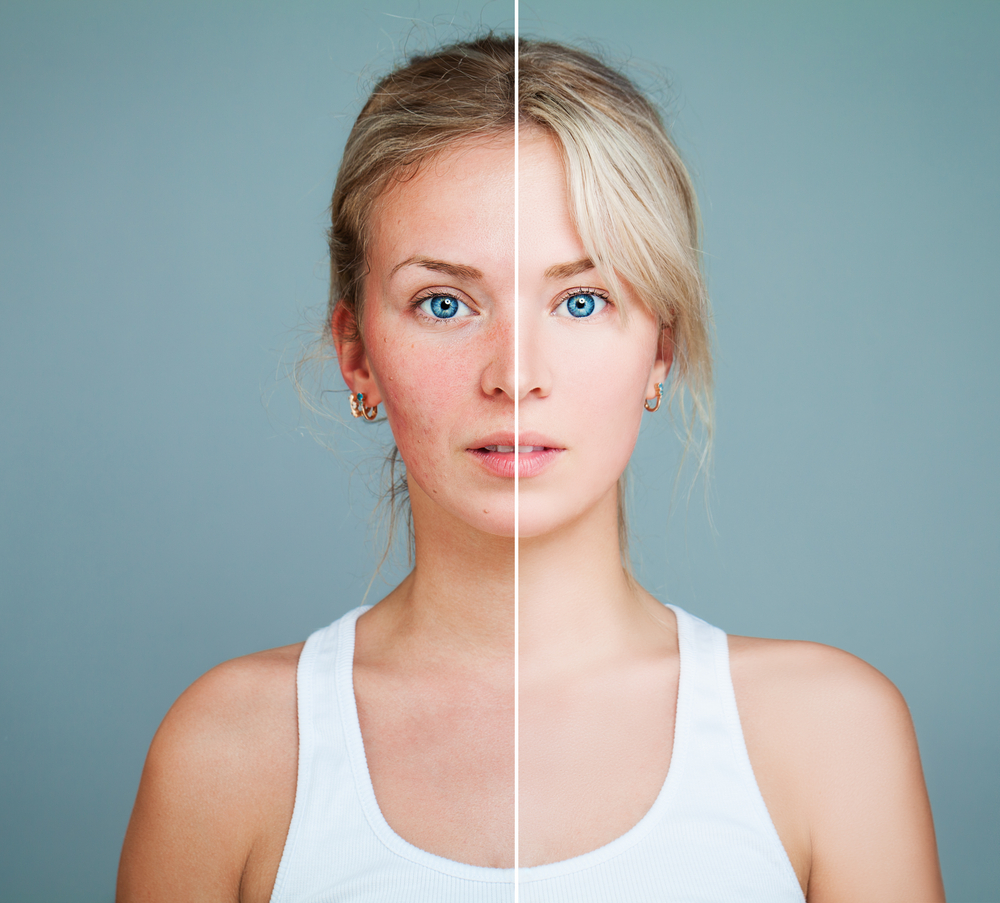All You Need to Know About Rosacea
As a chronic facial skin disorder, Rosacea can affect both men and women after 30, especially those who are fair and tend to blush easily. Rosacea generally is redness on your chin, cheeks, nose, forehead, ears, or even neck and scalp. If you avoid taking rosacea medication, the condition may worsen, leading to visible blood vessels, pimples, bumps, excess tissue and a bulbous nose.
Causes of Rosacea
This life-disrupting health issue is due to abnormal inflammation in your skin tissues, vascular changes due to sun damage, side effects caused by certain medicines, genetic causes, excessive intake of alcohol and coffee, sun exposure, spicy foods, humidity, stress and some cosmetics.

Symptoms of Rosacea
- Frequent flushing or blushing
- Persistent redness like a blush or sunburn on the face
- Small pimples or bumps that might resemble acne. But blackheads will be absent and burning might be felt
- Appearance of small blood vessels on the skin
- Bloodshot or watery eyes in case of ocular Rosacea, accompanied by red, swollen eyelids
- Excessively dry facial skin
- Red and raised patches on skin
- Facial edema or swelling
Treatment methods for Rosacea
Medications – The symptoms of rosacea is similar to acne. Dermatologists usually prescribe oral and topical medications to control the disorder quickly. Oral antibiotics are very helpful for ocular Rosacea for instance.
Other to dos – Dermatologists might also ask you to stay away from stress and avoid certain foods that trigger Rosacea. You might have to avoid foods rich in histamine, soy sauce, chocolate, citrus fruits, sour cream, cheese, vinegar, eggplants, avocados and spinach. You will have to use natural cosmetics and lotions, and wear sunscreen when you go out to avoid irritation caused by UV rays. Patients will have to gently clean their skin with lukewarm water and pat their face dry.
Natural remedies – Green tea is very effective as a Rosacea natural treatment. Just refrigerate a cup of green tea, soak a cloth in it and gently dab on affected skin. Drinking it can help control inflammation and redness too. You can also mix a tablespoon of coconut or almond oil with 2 drops of lavender essential oil and apply on the affected areas before going to bed. Massage honey on your skin, leave it on for 20 minutes and then wash it with lukewarm water. It will help reduce dryness. Make a solution with 8 tablespoons water and 2 tablespoons apple cider vinegar and dab it on your skin with a soft cloth. You can also apply Aloe Vera gel to affected areas. It can treat sunburns and heal Rosacea.
Laser treatment for Rosacea – Laser treatment is usually advised if there is thickening of skin or visible blood vessels. Laser is often helpful for curing permanent redness, though it can take a few sessions. Treatment effect can last for 3 to 5 years. Consult your dermatologist to find out if laser therapy is right for you and if it can cause side effects.

